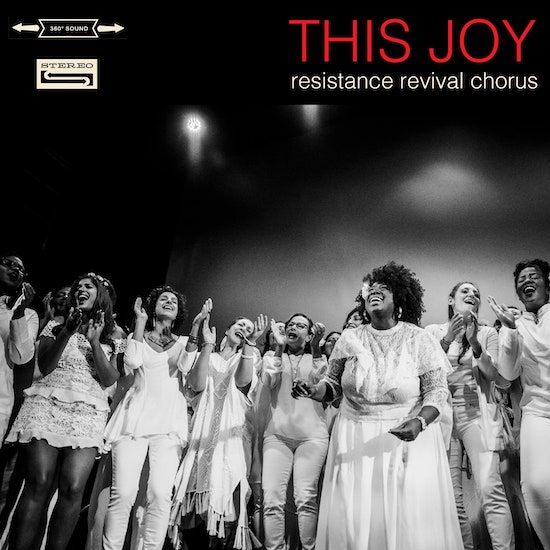When we think about albums meant to address the-state-of-it-all, songs responding to a political moment tend to be about harnessing rage. The Resistance Revival Chorus, however, believes that what needs to be channeled is joy, and this radical sentiment dominates their debut album, This Joy.
Formed as a product of the Women’s March, the explicitly activist project is comprised of more than 60 female and non-binary singers. Performing a mix of new songs and civil rights classics, the Resistance Revival Chorus uses minimalist or a capella arrangements, along with often highly repetitive lyrics, on songs that are perfect for chanting along to on a march. While chanting makes for some of the most memorable moments on the album, the musical references cover R&B, soul, gospel, and country.
This Joy is the unexpected feel-good record of the year. Focusing on joy helps toe the line between trying to motivate the masses and just preaching to them. And it does feel genuinely inspiring, perhaps because it’s more convincing when it’s a chorus of sixty-odd voices who want you to keep the faith.
The is only one mournful track, album opener ‘Say Her Name,’ which names women killed by the police and acknowledges those whose names remain unknown. It is also the only track sung completely solo, by Abby Dobson. But when followed by the buoyant refrain of ‘Ella’s Song,’ — ‘We who believe in freedom cannot rest’ — it’s clear that the sorrowful vocal of ‘Say Her Name’ sets up the thesis for This Joy. It is simply not enough to just be angry, there has to be momentum and there has to be community.
There is a formula to the arrangements, a solo voice building to the full backing force of the chorus, but it’s a nifty trick that allows the listener to get swept up in the collective every time. This pace carries throughout the album; guest solo singers frame social struggles in songs and cite solidarity as the solution across the first three quarters of the album. By the final quarter of the album, from the title track to the end, the sentiments are not about highlighting individual voices or examining problems, but barreling through by reclaiming progress and freedom.
With references to the White House and the NRA, some of This Joy exists in a specifically American context. The revived civil rights and gospel songs, even the cover of Woody Guthrie’s ‘All You Fascists Bound To Lose,’ follow from that same condition. But the collective energy of the group is an antidote to the fatigue of years of fraught global political climates. And maybe one could argue against the universality of the ‘hallelujah’ that the album ends on, but not against its spirit as a final, joyful rallying cry.



